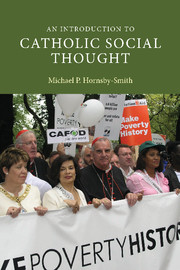Book contents
- Frontmatter
- Contents
- List of tables and figure
- Acknowledgements
- Dedication
- List of abbreviations and acronyms
- PART I SOCIAL REALITY AND SOCIAL ANALYSIS
- PART II THEOLOGICAL RESOURCES
- PART III JUSTICE ISSUES
- PART IV ACTION RESPONSES
- 12 Catholic responses to injustices
- Appendix: Selected campaigning organizations
- References
- Index
12 - Catholic responses to injustices
Published online by Cambridge University Press: 14 January 2010
- Frontmatter
- Contents
- List of tables and figure
- Acknowledgements
- Dedication
- List of abbreviations and acronyms
- PART I SOCIAL REALITY AND SOCIAL ANALYSIS
- PART II THEOLOGICAL RESOURCES
- PART III JUSTICE ISSUES
- PART IV ACTION RESPONSES
- 12 Catholic responses to injustices
- Appendix: Selected campaigning organizations
- References
- Index
Summary
THE GLOBAL SOCIAL CONTEXT
This chapter considers the fourth and final stage of the pastoral cycle: social action responses to the reality of domestic and international injustices (Part III), in the light of the framework for social analysis suggested in Part I and the theological analysis in Part II. After a recapitulation of the argument so far, it will endeavour to suggest ways in which ordinary Christians might respond. In general terms, Christians are called to work in collaboration with all people of good will, through the institutions of civil society – NGOs, campaigning groups, voluntary organizations, and the like – to promote human flourishing, enhance human dignity, the common good and solidarity between all God's people and the integrity of the whole of God's creation. While there are numerous people of good will, members of other faiths and secular humanists, struggling against the same injustices, the focus here is primarily with the beliefs and values which motivate Catholic responses. In spite of the immensity of the tasks to be addressed, there is the reassurance in the parable of the mustard seed that even small contributions grow (Mk 4: 26–32; Mt 13: 31–32; Lk 13: 18–19).
This book has aimed to introduce the reader to the broad thrust of Catholic social thought as it has developed, particularly over the past century in response to changing circumstances and new challenges. The Church's social teaching is a dynamic creation and seeks to address the different moral questions which emerge in each age.
- Type
- Chapter
- Information
- An Introduction to Catholic Social Thought , pp. 321 - 342Publisher: Cambridge University PressPrint publication year: 2006



